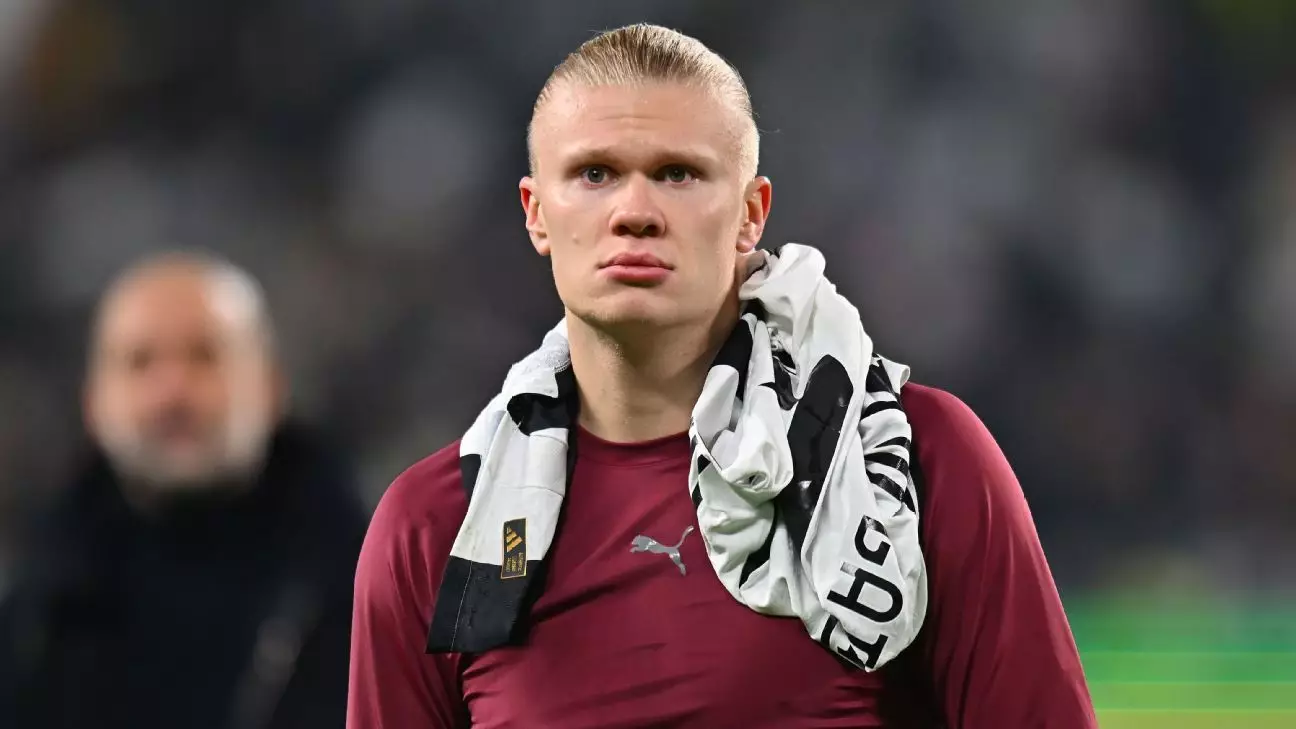The UEFA Champions League has reached another critical juncture as Matchday Six concludes for the 2024-25 season. With only a few games left, clubs are solidifying their standings, and the stakes couldn’t be higher. Notably, Manchester City suffered a damaging loss to Juventus, which places Pep Guardiola’s aspirations to advance in serious jeopardy. On the brighter side, both Arsenal and Liverpool showcased their talents, reinforcing their claims as leading contenders in this high-stakes competition. This article dives deeper into the implications of Matchday Six and examines the standout performances, coaching strategies, and the unpredictability that defines the Champions League.
Manchester City and Paris Saint-Germain (PSG) find themselves at a crossroads, where the final stages of the group phase could determine their futures in the competition. Following their defeat to Juventus, City is in a precarious position. While it may sound paradoxical, a loss in their upcoming match against Brugge could still see them progress due to favorable conditions in their final group standings. In stark contrast, PSG, who are facing their own challenges, must contend with their form as they prepare for a crucial away fixture against VfB Stuttgart. The narrative of these two clubs illustrates the unpredictability of the league, where once-mighty giants must prove their mettle against rising contenders.
Although some analysts feel both clubs will qualify for the knockout stages, the rollercoaster nature of this league phase has stoked heavy speculation regarding both managers. Guardiola faces a dual burden of expectation—a strong Premier League campaign and a desire for European glory—while Luis Enrique must overcome the psychological challenges posed by their patchy performance thus far. This pressure can often manifest unpredictably on matchday, creating an atmosphere thick with tension and anticipation.
Under the stewardship of Arne Slot, Liverpool looks like a transformed team this season. After an impressive showing, the Reds stand as strong contenders for the Champions League title. Their ability to navigate through matches—often finding solutions even in less stellar performances—speaks volumes about their resilience. A key element in their success lies in the tactical flexibility afforded to Slot; however, facing the pressures of maintaining such high standards across multiple competitions is an ongoing challenge.
Nonetheless, pivotal players like Ryan Gravenberch will be vital to their hopes of success, as his absence would severely dent Liverpool’s attacking potency. The question looms: how will Slot manage the intricacies of squad rotation, particularly as his team competes both domestically and in Europe? As Liverpool looks ahead to the knockout stages, the burden of expectations will challenge them to maintain focus and quality performance.
Standout Performances and Wonder Goals
Matchday Six wasn’t simply about team tactics and strategies; individual brilliance surfaced across the league. A stunning array of goals graced the pitch, with moments of sheer magic elevating the competition’s allure. Michael Olise’s phenomenal slalom goal defined the week, showcasing technical mastery and flair that left defenders bewildered. Yet, as with all things in football, the narrative is seldom straightforward. Critics raised eyebrows over the quality of opposition during those critical moments, debating whether these standout performances were bolstered by lax defending more than individual genius.
Moreover, the discourse extended to other notable goal-scorers like Julián Álvarez and Anis Hadj-Moussa, whose strikes were equally impressive. This diversity in performance—from exquisite curls to decisive finishes—demonstrates the multifaceted nature of football artistry. The celebration of these players underscores the significance of individual contributions in a team sport, often shifting the focus from mere outcomes to the beauty of the game.
As attention shifts towards potential ‘dark horses’ in the competition, a few clubs have piqued interest amid the traditional favorites. Bayer Leverkusen and Atalanta appear poised to disrupt the established order, showcasing tactical discipline and fortitude. With the knockout stages on the horizon, these teams have the potential to capitalize on the vulnerabilities of more fancied rivals.
Atalanta, for instance, continues to impress in Serie A and could bring their formidable domestic form into the knockout stage. Their blend of experienced and youthful talent makes them a team nobody wants to face in a sudden-death scenario. Similarly, Leverkusen under Unai Emery’s guidance could emerge as a powerful presence, especially given his track record in European competitions.
As the Champions League unfolds, the interplay of coaching strategies, player form, and unforeseen circumstances will dictate the fortunes of these teams and their ambitions. Ultimately, fans and experts alike are left with a tantalizing array of questions—who will thrive in pressure-packed environments, and who will falter? As the tournament progresses, this unpredictability may very well define the essence of the UEFA Champions League.

